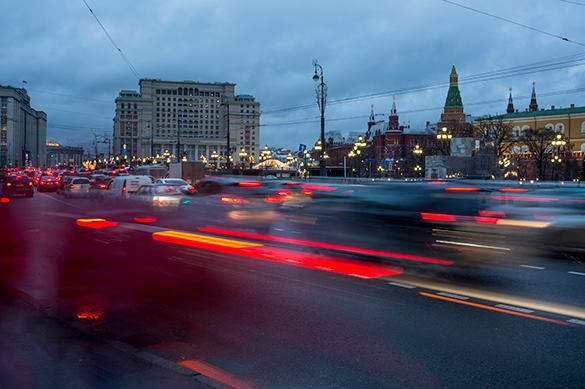Moscow and Muscovites: Facts and Fiction
Moscow celebrated its 869th birthday in early September 2016. There are numerous myths and legends about Russia’s capital and its citizens. About 70 percent of Russians living outside Moscow think of their nation’s capital as “just a big city.” Twenty-two percent said that they consider Moscow to be the incarnation of Russia’s best things. About 36 percent of those living in the province said that they treated Moscow positively, whereas another 36 percent said that they did not have any special feelings about the capital. Twenty percent of the polled said that their attitude to Moscow was utterly negative in every sense.

Many of the polled described Moscow as the city that sucks out Russia’s blood. This negative association creates certain hostility to Muscovites, who, as many of the polled said, live better not just because they work better, but just because of the fact that they live in Russia’s capital.
The research also showed that the majority of non-Muscovites – 66 percent – think of Moscow residents as a separate category of Russian people. They imagine a Muscovite as a person having a good job, a high income, and fine business qualities. However, when speaking about personal qualities, many Russians distinguish negative traits, such as snobbism and arrogance. Six percent consider Muscovites rude, aggressive, greedy, nervous, selfish and inhospitable.
Russia ’s Center for Migration Research said that the number of native Muscovites, whose grandparents also lived in Moscow, is currency very small. Native Muscovites make only two percent of the population of the city – nearly 180,000 people. Nearly a half of the city population – 47 percent – was born outside Moscow.
The average salary in Moscow makes up approximately 33,000 rubles ($1,000). The average salary in the rest of Russia makes up 15,000 rubles. A manager in Moscow receives 27,000 or 30,000 rubles ($900) a month, whereas the same manager in other large cities – Krasnodar, Yekaterinburg or Krasnoyarsk, for instance – would be paid up to 10,000 rubles ($320) for the same job.
The prices on goods and service in Moscow make Russia’s capital one of the most expensive cities in the world. Even millionaires find it expensive to live in Moscow. For instance, living in a Moscow hotel is 40 percent more expensive than staying in a similar-class hotel in London.
A traffic jam in Moscow lasts for about 1h 26m. A traffic jam in St. Petersburg usually lasts for 54 minutes, in Yekaterinburg – for 46 minutes, in Kiev – for 45 minutes. About 800 jams with up to 1,500 cars in each of them paralyze Moscow traffic every day. Moscow residents spend over 12 hours a month in traffic jams, which makes six full days a year.
Moscow is a densely populated city. There are about 120 people living on each hectare of land in Russia’s capital. For comparison, the density of population in Chicago makes up 16 people per hectare, 40 people in New York, 62 in London, 88 in Paris and 367 in Hong Kong.
Pravda.Ru
Subscribe to Pravda.Ru Telegram channel, Facebook, RSS!


